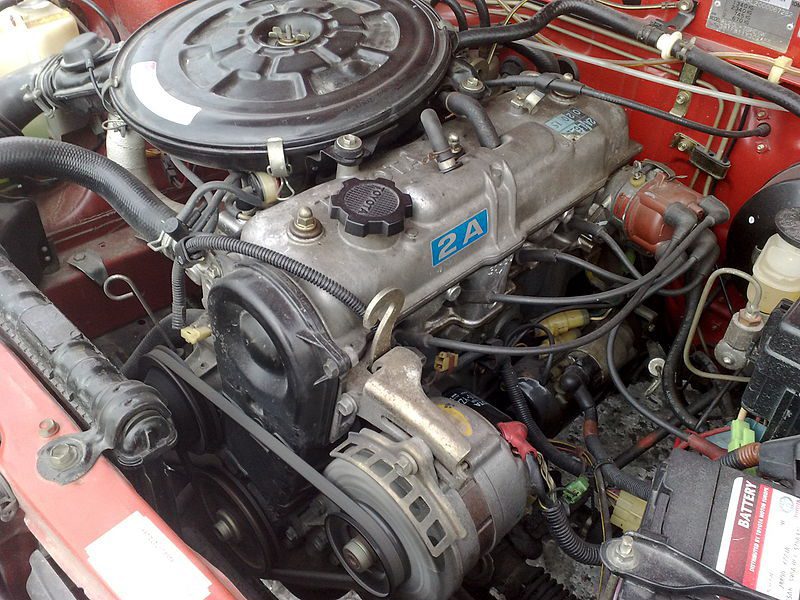Comprehending the Long-Term Advantages of Buying Engines for Africa for Future Development
The possibility of purchasing engines for Africa-- covering infrastructure, technology, and education-- provides a compelling possibility for long-lasting development and stability. By strategically boosting these locations, countries can substantially enhance productivity and market accessibility, while all at once developing a proficient workforce efficient in driving advancement. Such financial investments not only lead the way for sustainable financial diversity however also fortify strength against global obstacles. Nonetheless, the ramifications of these financial investments prolong past immediate advantages, raising crucial questions concerning the future trajectory of African economic situations and their role in the worldwide landscape. What paths might arise from this fundamental change?
Economic Security and Strength

Moreover, resilience allows African countries to adjust to transforming global dynamics, including climate adjustment and technical innovations. By prioritizing economic diversification, countries can lower reliance on a narrow variety of fields, thus minimizing risks connected with financial recessions. Investment in facilities, education and learning, and modern technology more boosts this durability, encouraging areas to prosper despite challenges.
Implementing sound monetary policies and reinforcing monetary institutions are also vital approaches for improving economic security. These procedures can facilitate access to credit scores, enhance financial savings rates, and advertise reliable resource appropriation. Eventually, a robust financial framework lays the structure for lasting advancement, making certain that Africa can maximize its tremendous capacity while getting ready for future unpredictabilities.
Job Development Opportunities
A vivid task market is crucial for driving sustainable development and minimizing destitution in Africa. Purchasing engines for Africa, especially in sectors such as production, farming, and technology, can dramatically enhance work production possibilities across the continent. As new industries emerge, they demand a labor force outfitted with varied skills, leading to boosted work leads for regional populaces.
These investments not only create straight job chances yet also boost supplementary industries. For example, a growing manufacturing market can bring about heightened need for logistics, upkeep, and supply chain administration functions. This multiplier result magnifies the overall work landscape, promoting a robust community where numerous markets thrive collectively.
Furthermore, raised task possibilities can boost entrepreneurship, as people with stable incomes frequently seek to buy their own services. This entrepreneurial spirit can offer extra employment avenues, contributing to a dynamic economic climate.
Eventually, by concentrating on job development through calculated financial investments, Africa can harness its potential, ensuring that financial development translates right into concrete advantages for its people - engines for Africa. In doing so, the continent can develop a sustainable future that focuses on both economic growth and social upliftment

Enhancing Education And Learning Equipment
Routinely enhancing education systems is important for furnishing Africa's youth with the skills required to flourish in a rapidly evolving job market. A durable instructional structure needs to focus on both academic excellence and functional skill development. By aligning curricula with the needs of markets, universities can better prepare pupils for future work chances.
Investment in teacher training programs is important to boost academic high quality. Well-trained teachers influence students and foster essential reasoning, creativity, and problem-solving capacities. Moreover, incorporating vocational and technological training into the education and learning system can provide students with concrete skills that fulfill market requirements, thereby minimizing youth joblessness prices.

Moreover, enhancing accessibility to education, specifically in underserved and country areas, is important. Strategies such as mobile understanding systems and community-based education efforts can connect the void, making certain that all young people have the opportunity to be successful (engines for Africa). Ultimately, a versatile education system will certainly be a foundation for Africa's lasting development and development
Innovations in Technology
Using the power of technology is changing numerous markets throughout Africa, leading the method for innovation and development. The integration of advanced technologies such as expert system, big data, and the Internet of Things (IoT) is changing sectors, improving efficiency, and driving economic growth. These innovations are making it possible for services to improve operations, boost decision-making procedures, and cultivate a much more open market setting.
In farming, for instance, accuracy farming methods powered by data analytics are maximizing crop yields and source administration. Similarly, the economic industry is observing a rise in mobile banking and fintech remedies, which are enhancing financial incorporation and offering essential services to underserved populaces. Additionally, the medical care sector is taking advantage of telemedicine and digital health and wellness documents, enhancing accessibility to quality treatment throughout remote areas.
As innovation proceeds to evolve, its effect on education and learning is also considerable, with e-learning systems expanding academic chances. By purchasing these technological developments, African countries can unlock new economic opportunities, develop work, and elevate living requirements. Welcoming development is crucial for sustainable growth, making sure that Africa continues to be competitive on the global stage.
Framework Growth Influence
The rapid developments in see this website innovation are very closely linked with the urgent requirement for facilities advancement throughout Africa. As nations make every effort to enhance their economic landscapes, purchasing durable facilities systems comes to be extremely important. Efficient facilities-- making up transport networks, energy grids, and communication systems-- assists in better accessibility to markets and sources, eventually boosting efficiency and financial growth.
The impact of facilities growth expands past instant economic benefits. It plays an important function in improving the quality of life for people by supplying vital solutions such as tidy water, electrical power, and health care. Boosted facilities fosters a setting conducive to technology, bring in both regional and foreign investments. This, subsequently, minimizes and produces work poverty line, therefore changing communities.
Additionally, strategic financial investments in infrastructure can mitigate the dangers connected with climate modification, as durable systems are important for adapting to environmental challenges. By focusing on lasting facilities advancement, African countries can guarantee lasting growth and security. Ultimately, the interaction in between technological innovations and infrastructure advancement is essential for realizing the continent's complete possibility and achieving sustainable advancement visit this site objectives.
Conclusion
To conclude, purchasing engines for Africa-- incorporating education and learning, technology, and infrastructure-- provides substantial long-lasting benefits necessary for lasting development. Such strategic investments foster economic stability and strength, develop work chances, and boost education and learning systems, ultimately causing innovations in technology and infrastructure advancement. The collective impact of these campaigns not just enhances market accessibility and source distribution yet additionally positions African countries to adjust and prosper in a progressively dynamic global landscape.
Economic stability and strength are vital parts for lasting advancement in Africa, specifically as the continent looks for to harness its large resources and capacity. By prioritizing financial diversity, countries can reduce reliance on a narrow range of sectors, hence alleviating dangers associated with financial recessions. Eventually, a robust financial framework lays the structure for sustainable development, making certain that Africa can utilize on its immense possibility while preparing for future uncertainties.
Effective framework-- comprising transport networks, energy grids, and interaction systems-- assists in improved accessibility to sources and markets, eventually bolstering performance and economic development.
Such calculated investments foster financial security and resilience, produce job chances, and boost education systems, inevitably leading to innovations in technology and framework development.